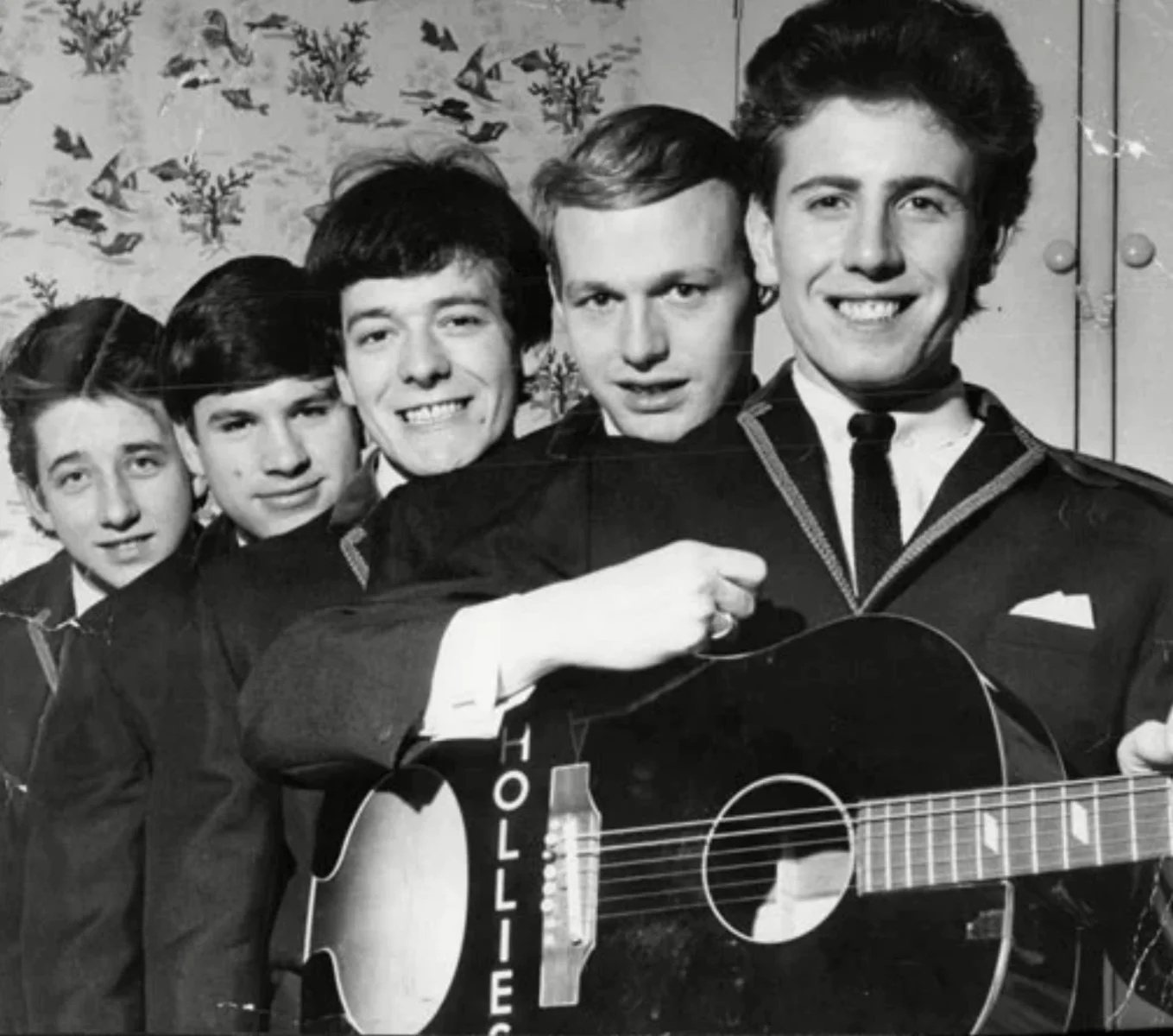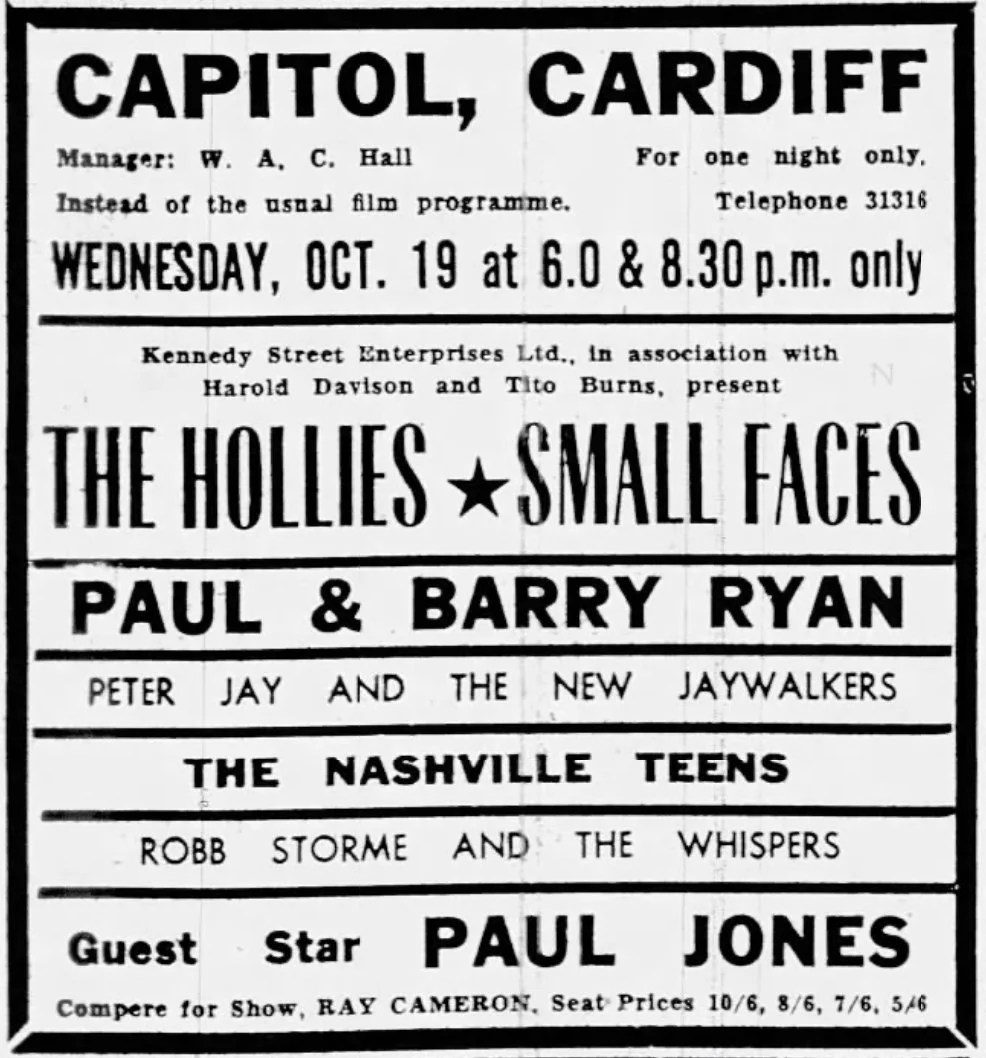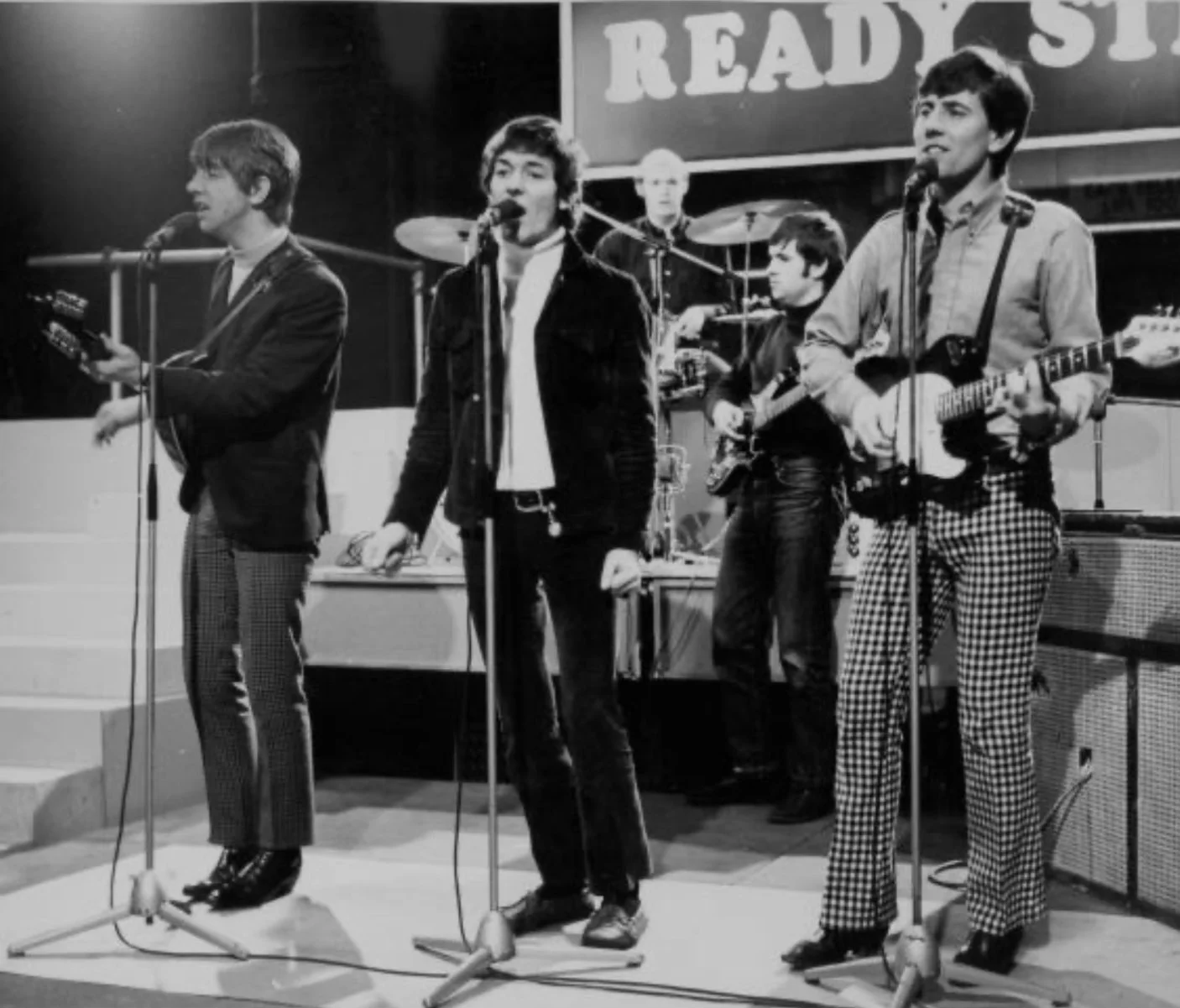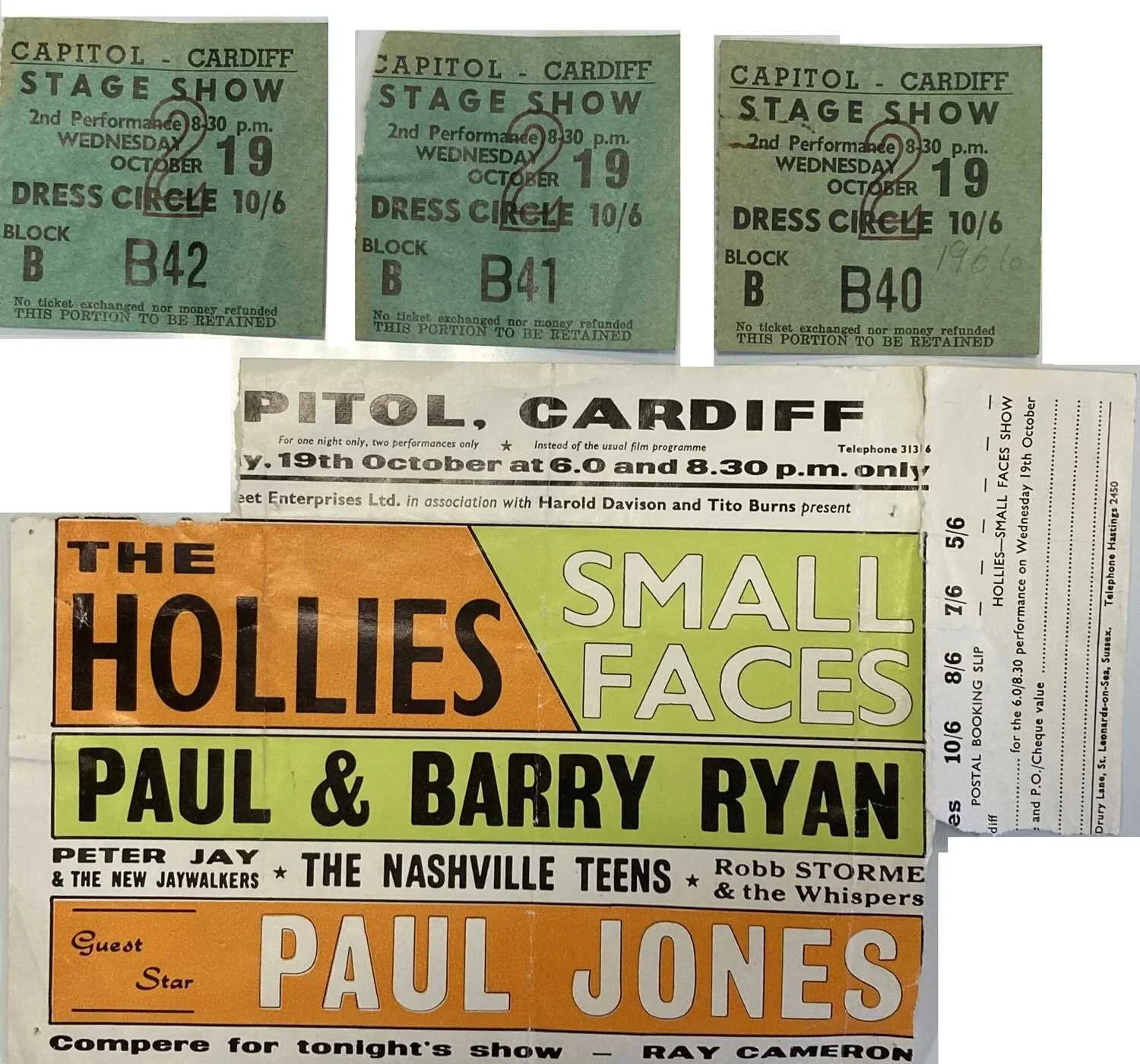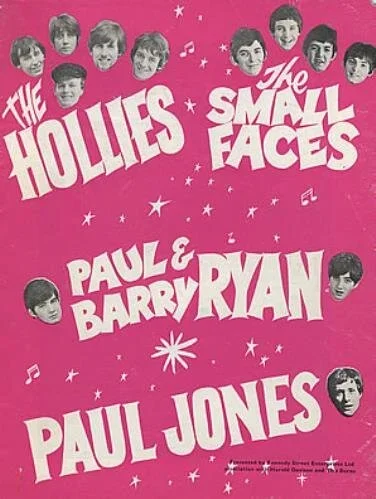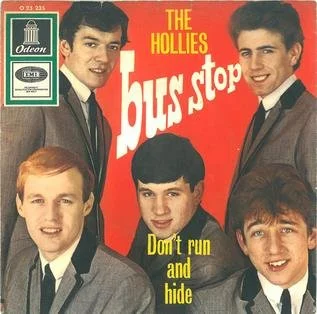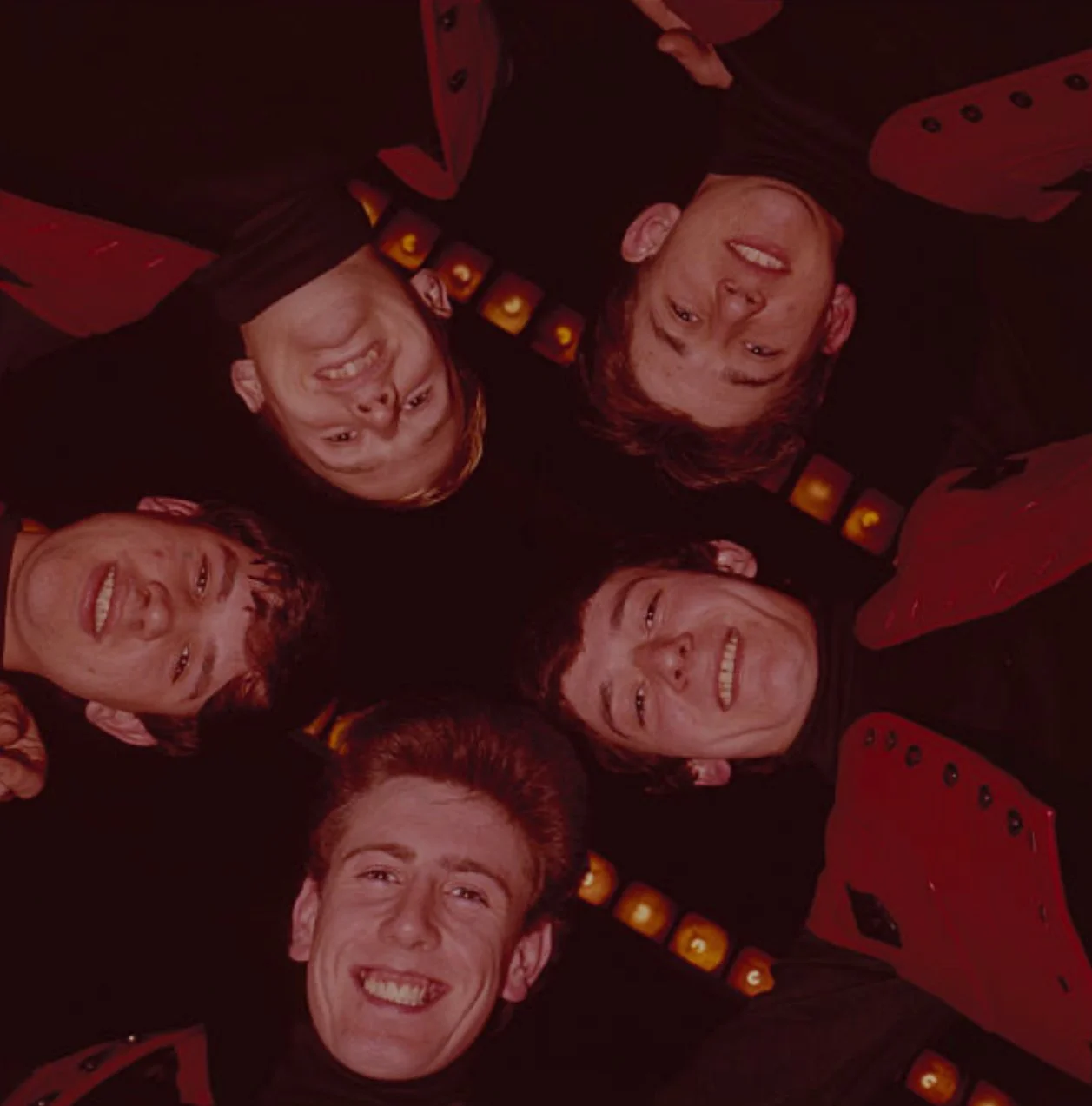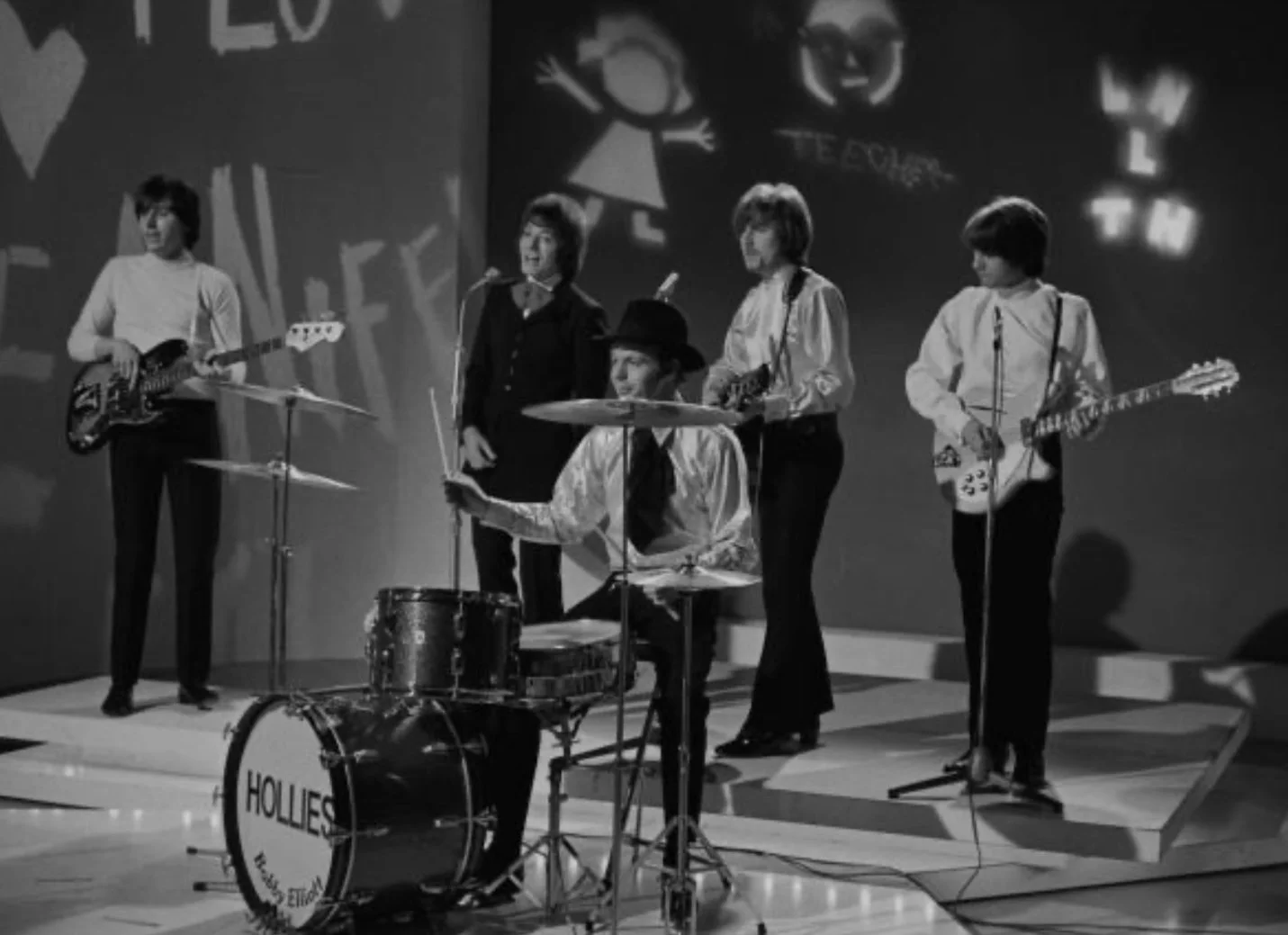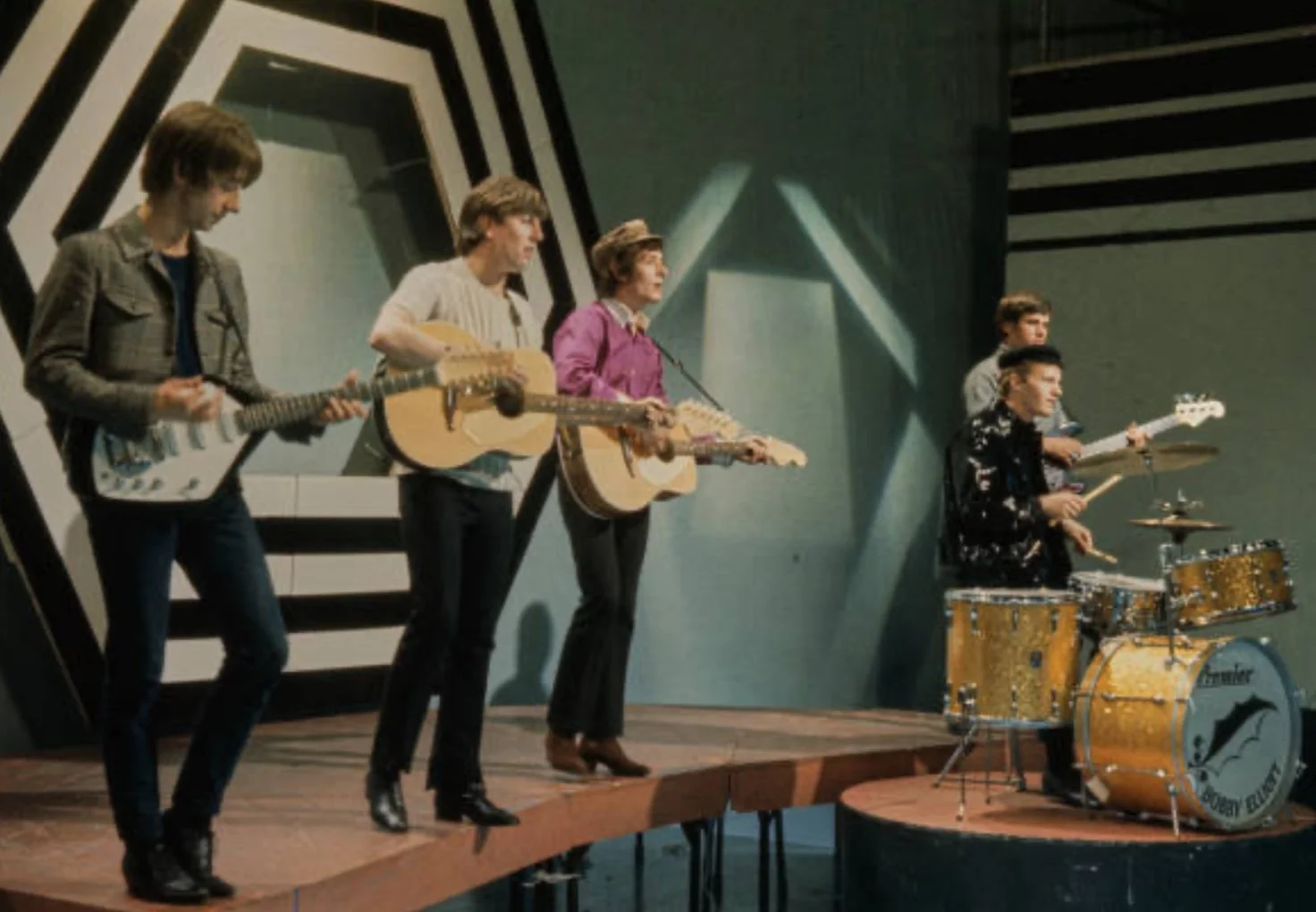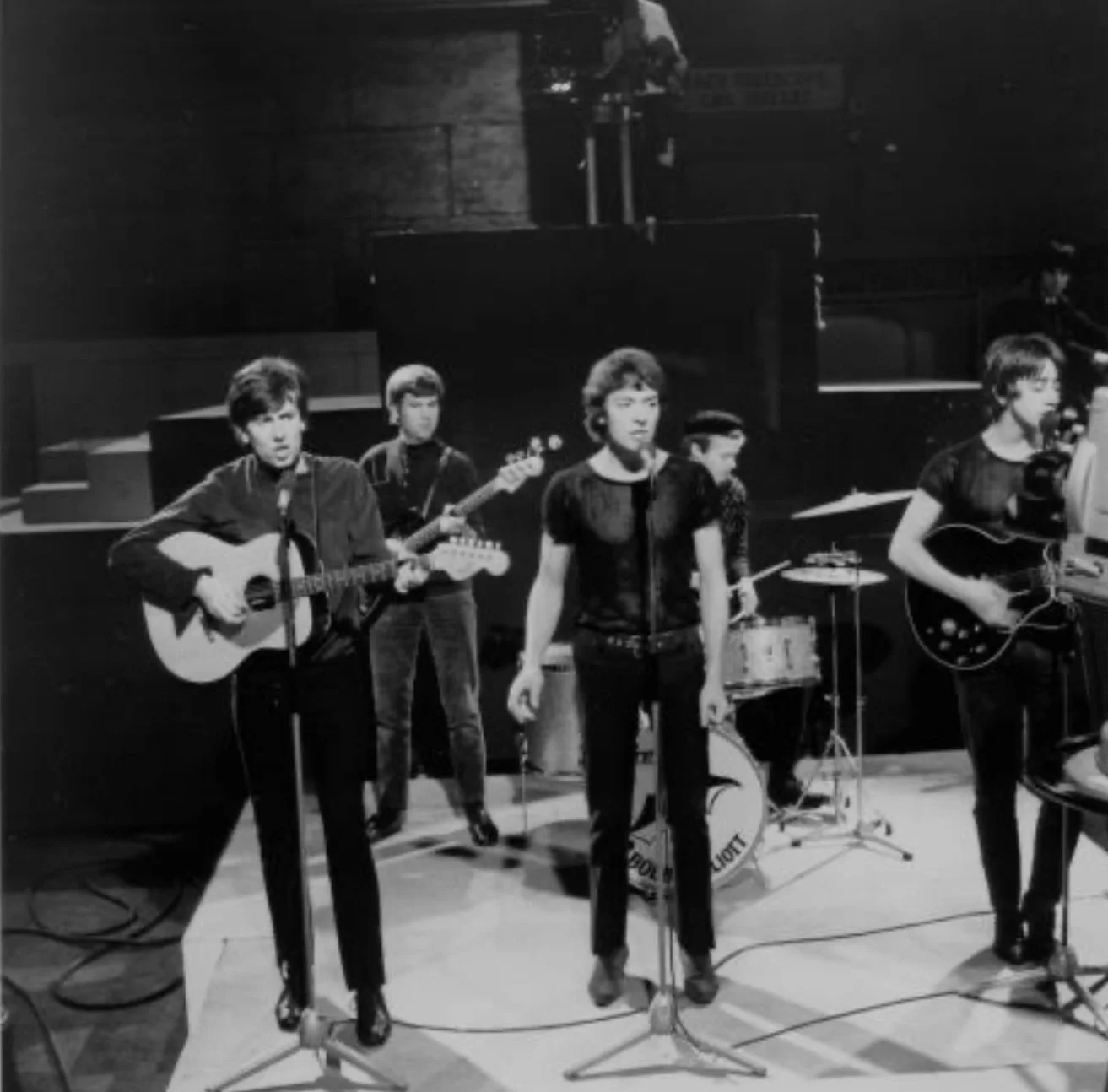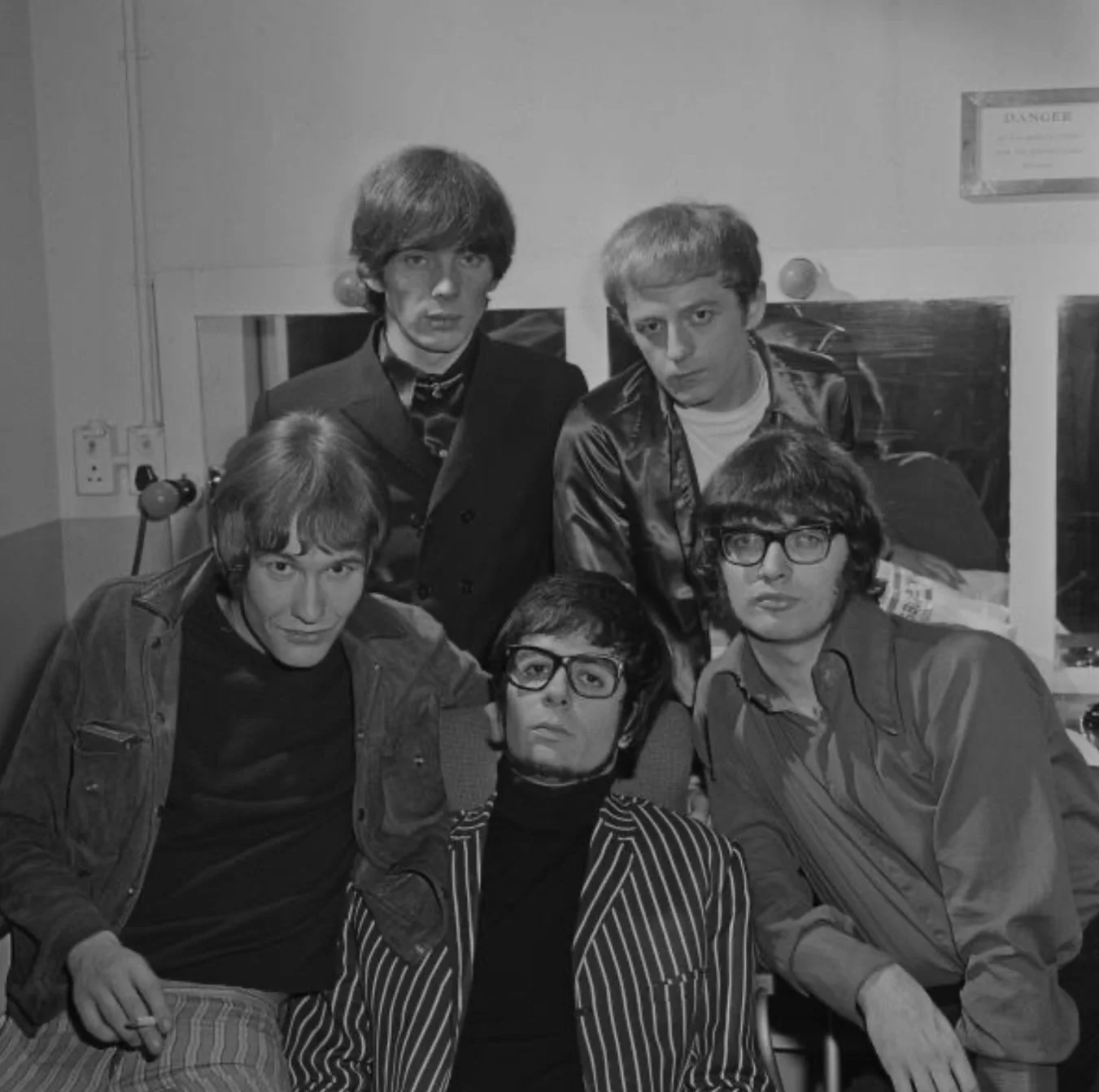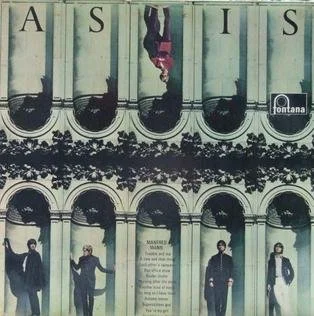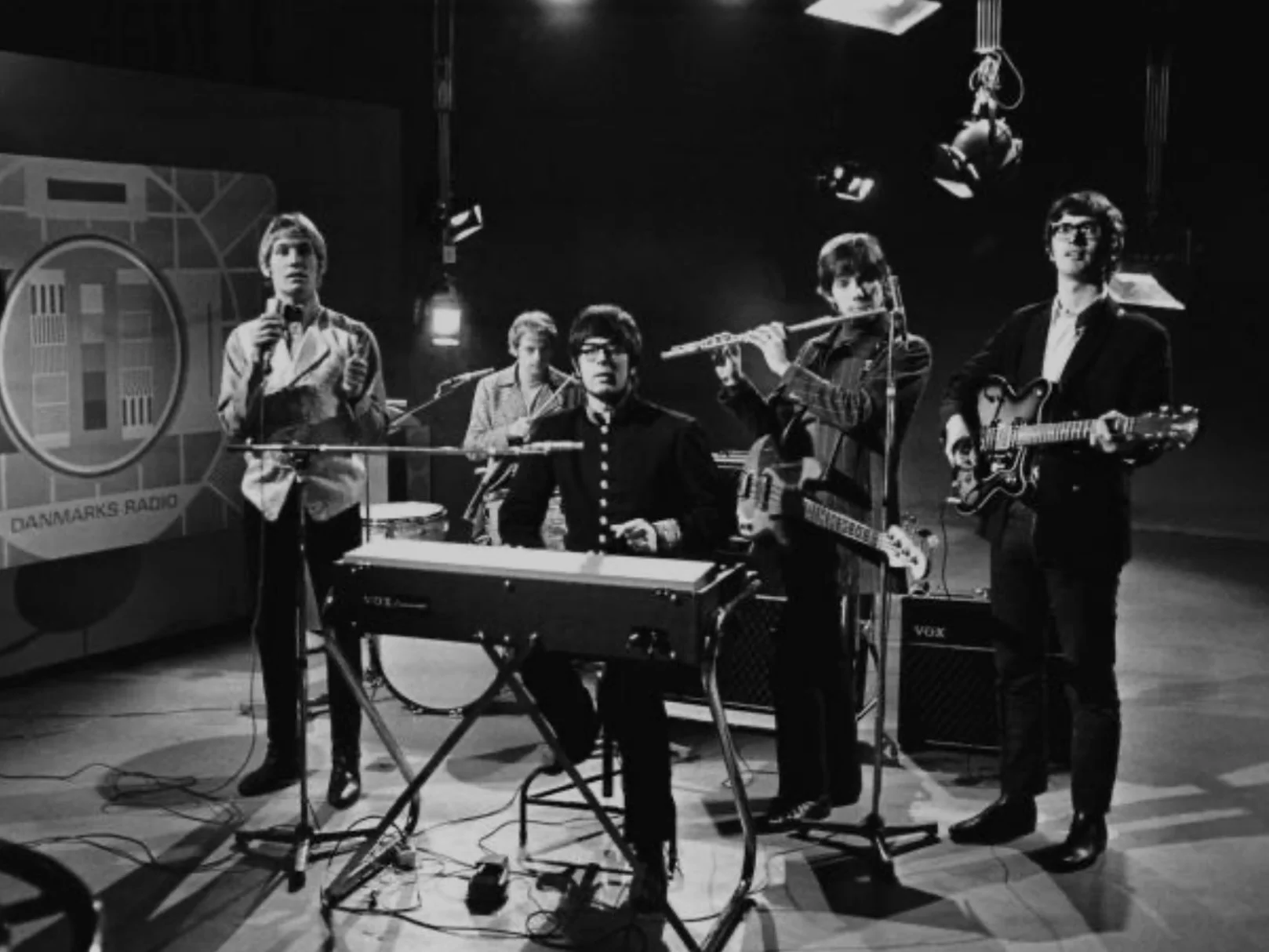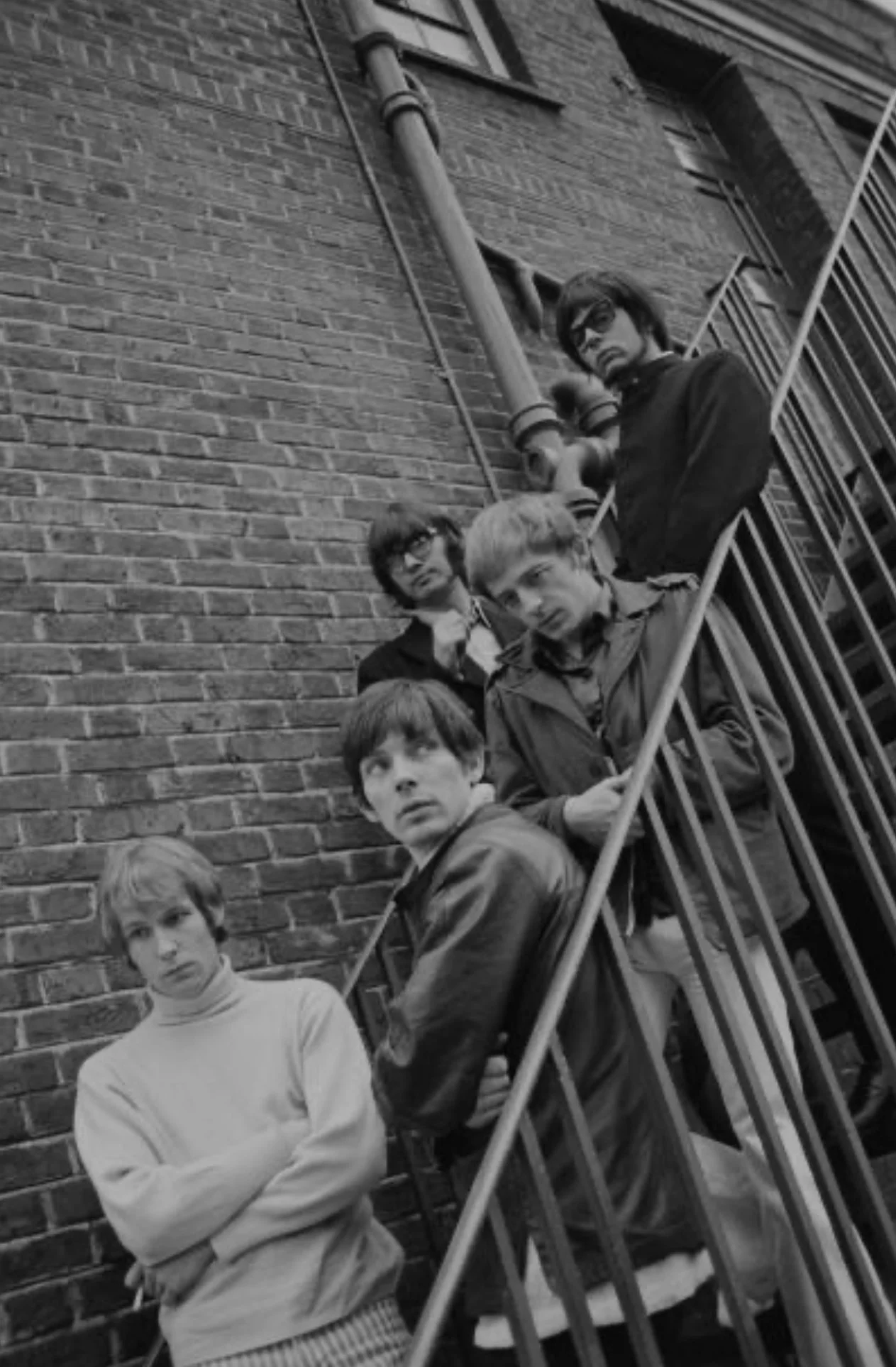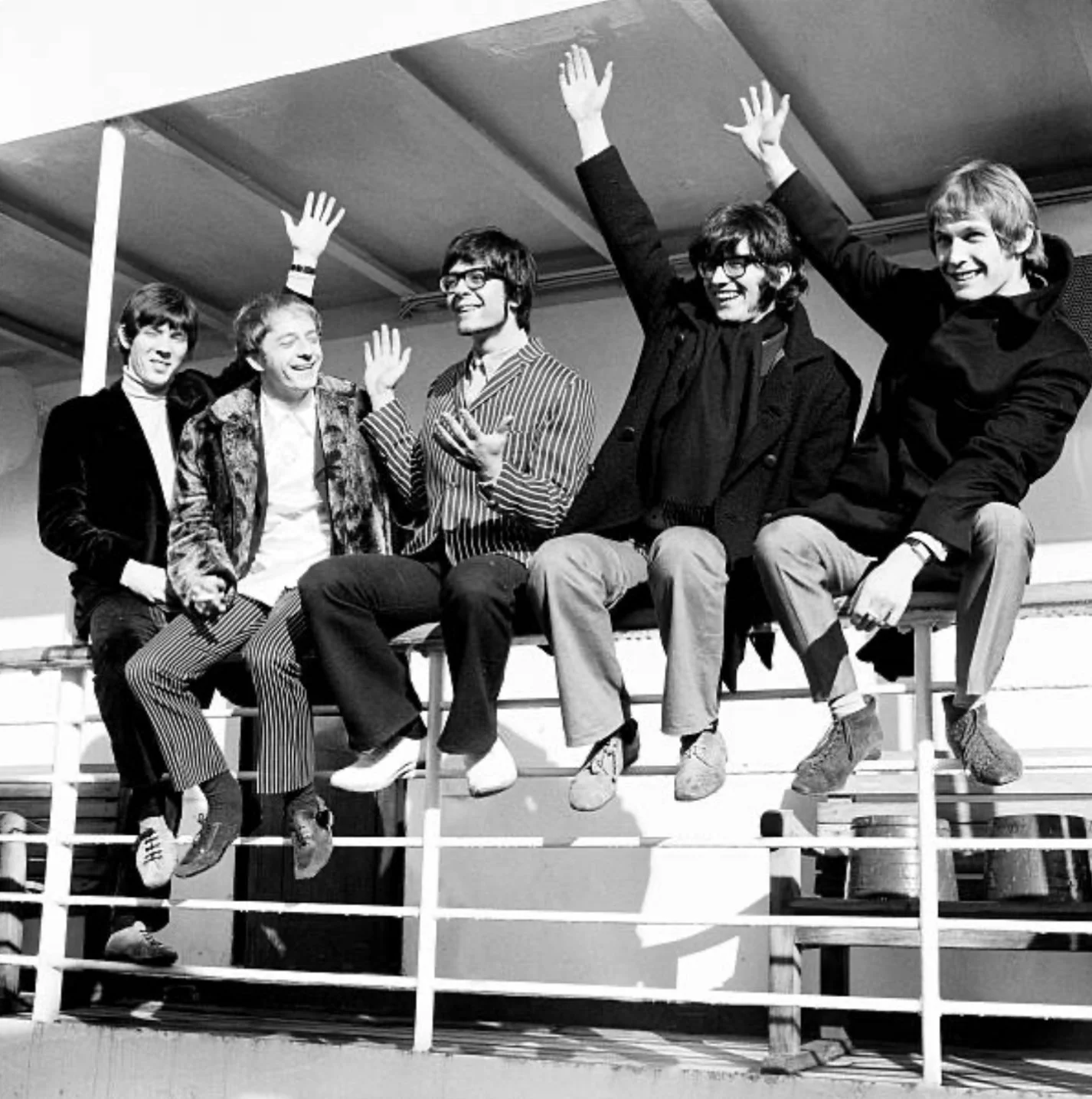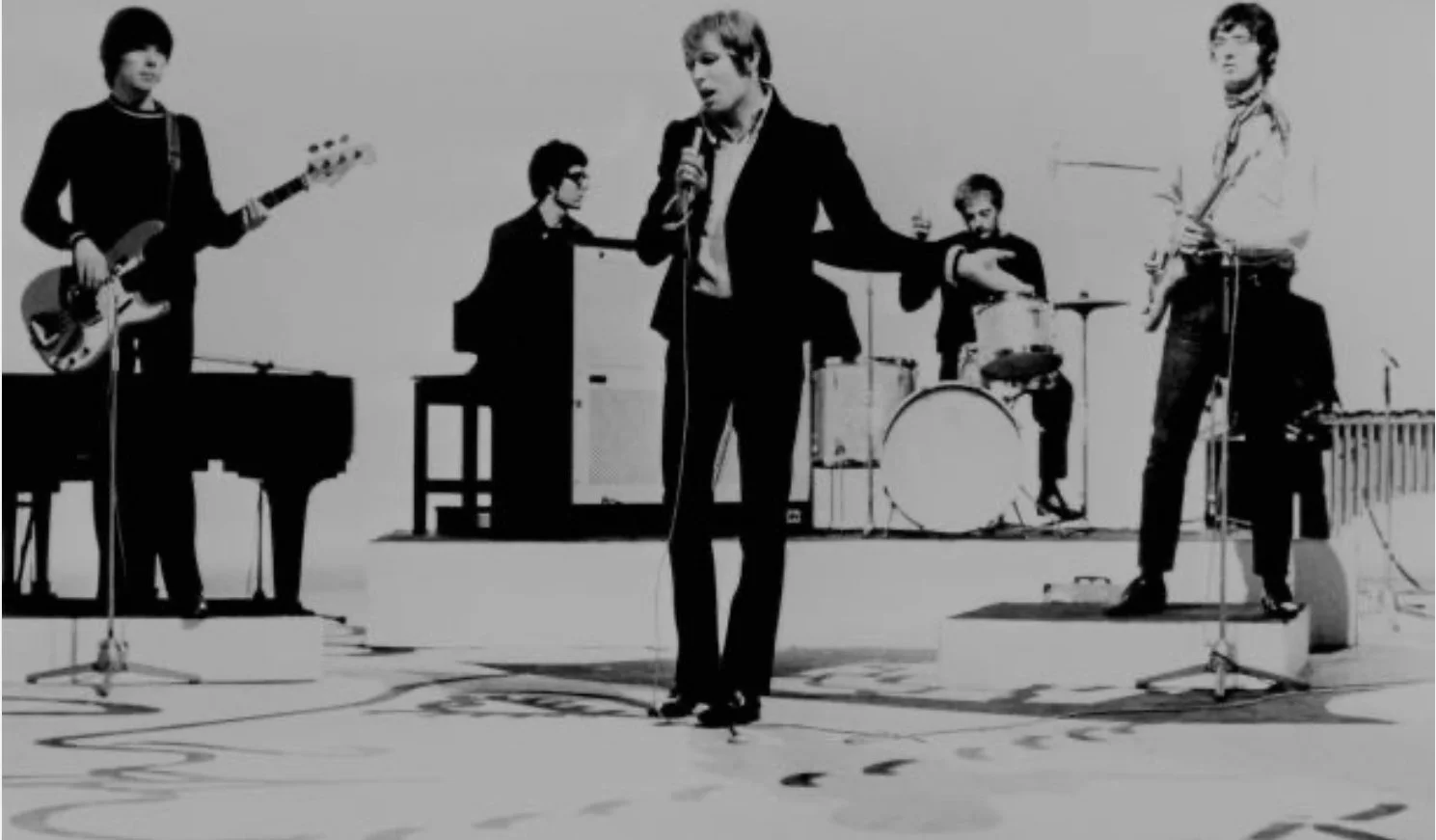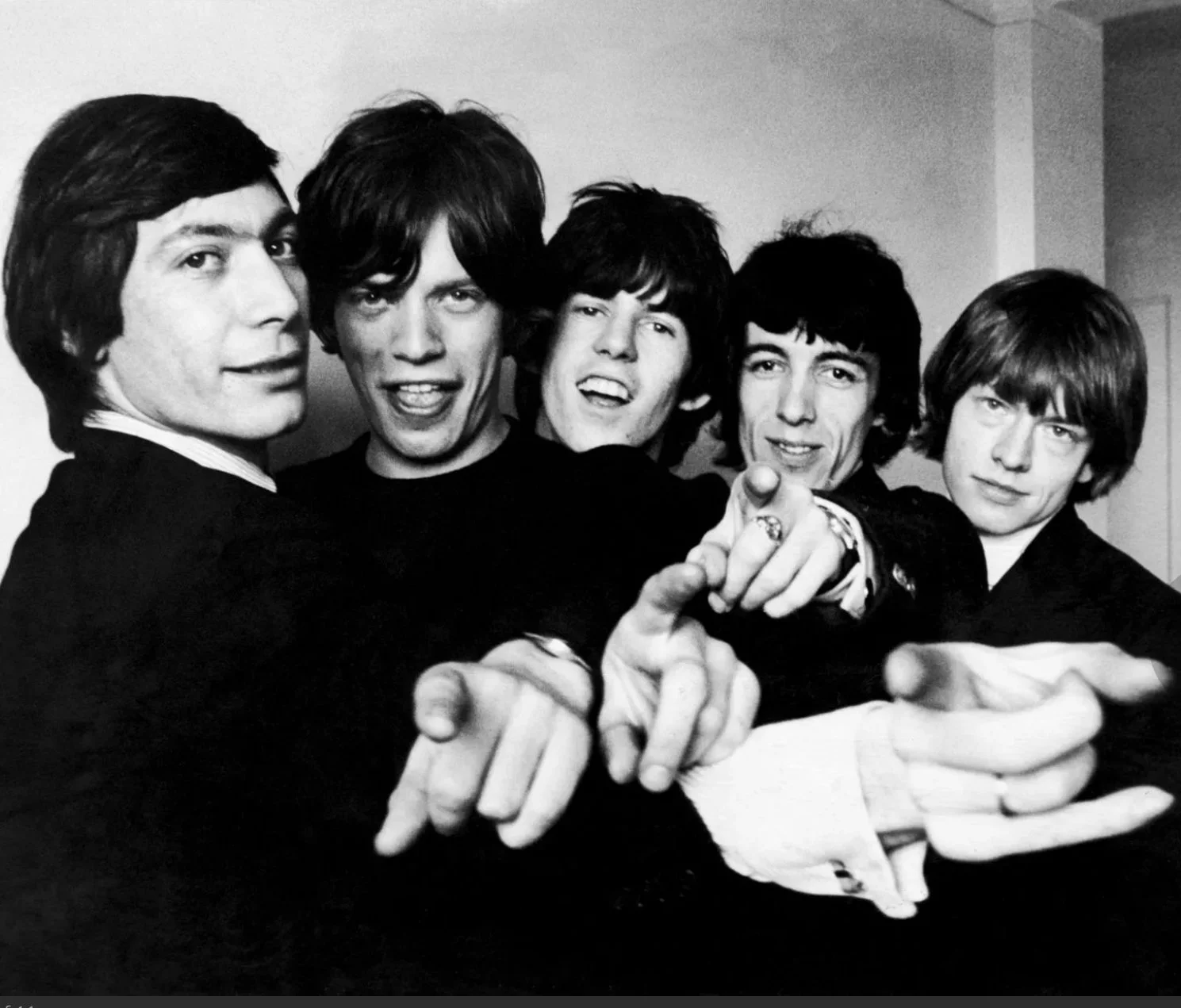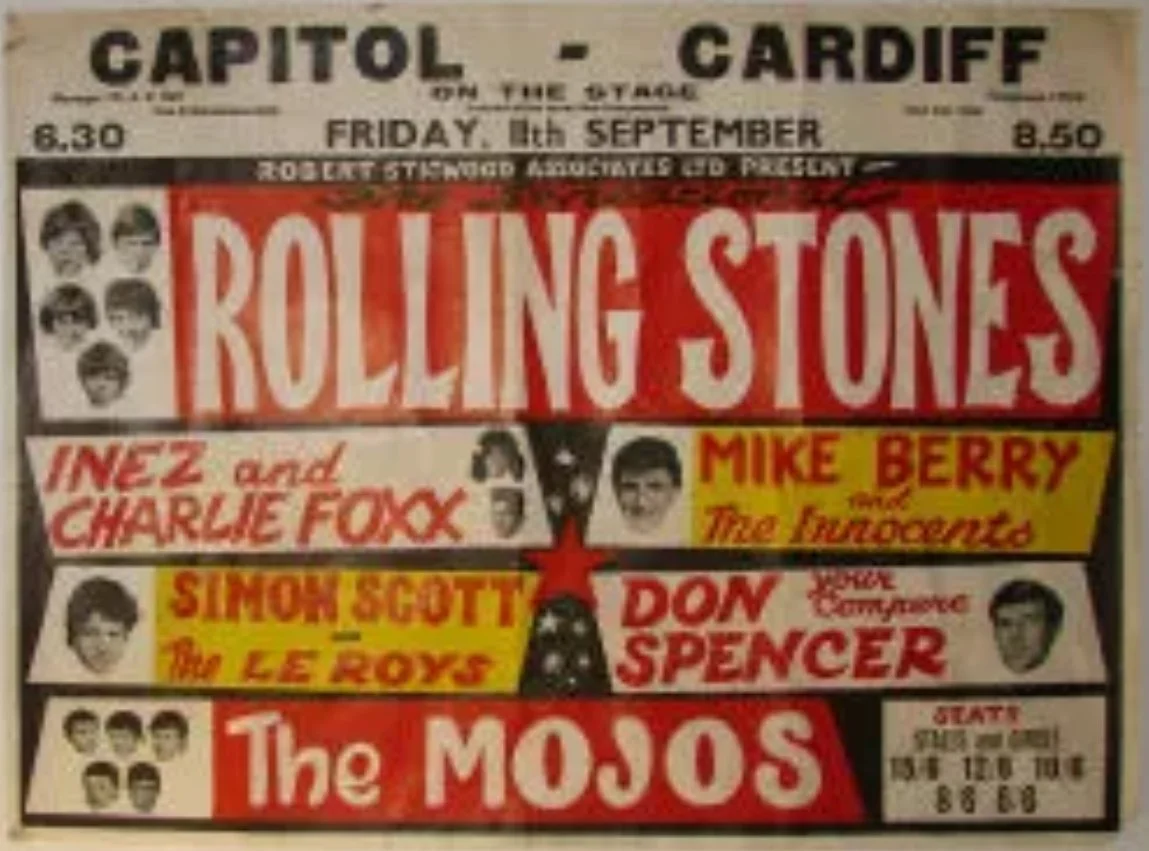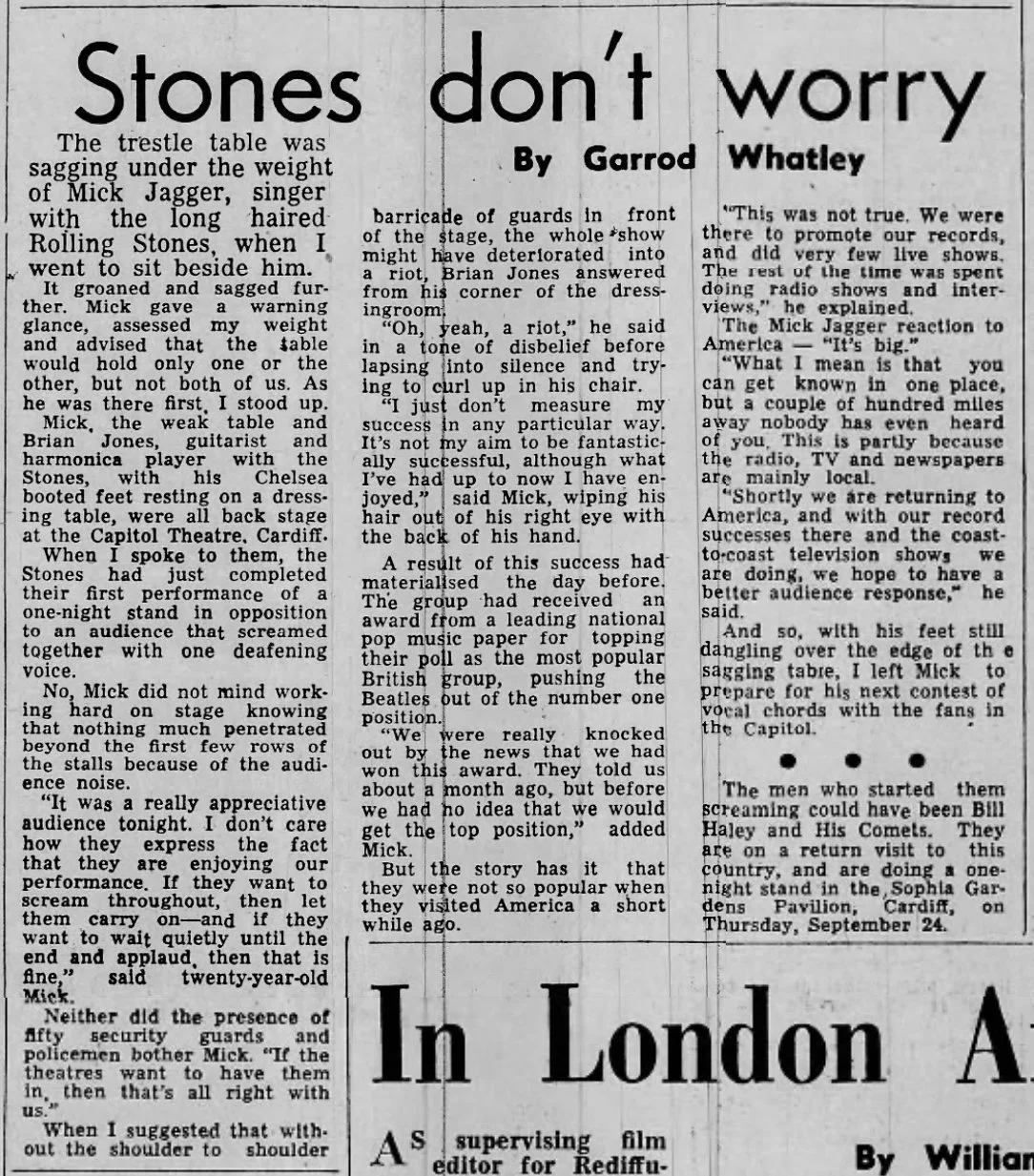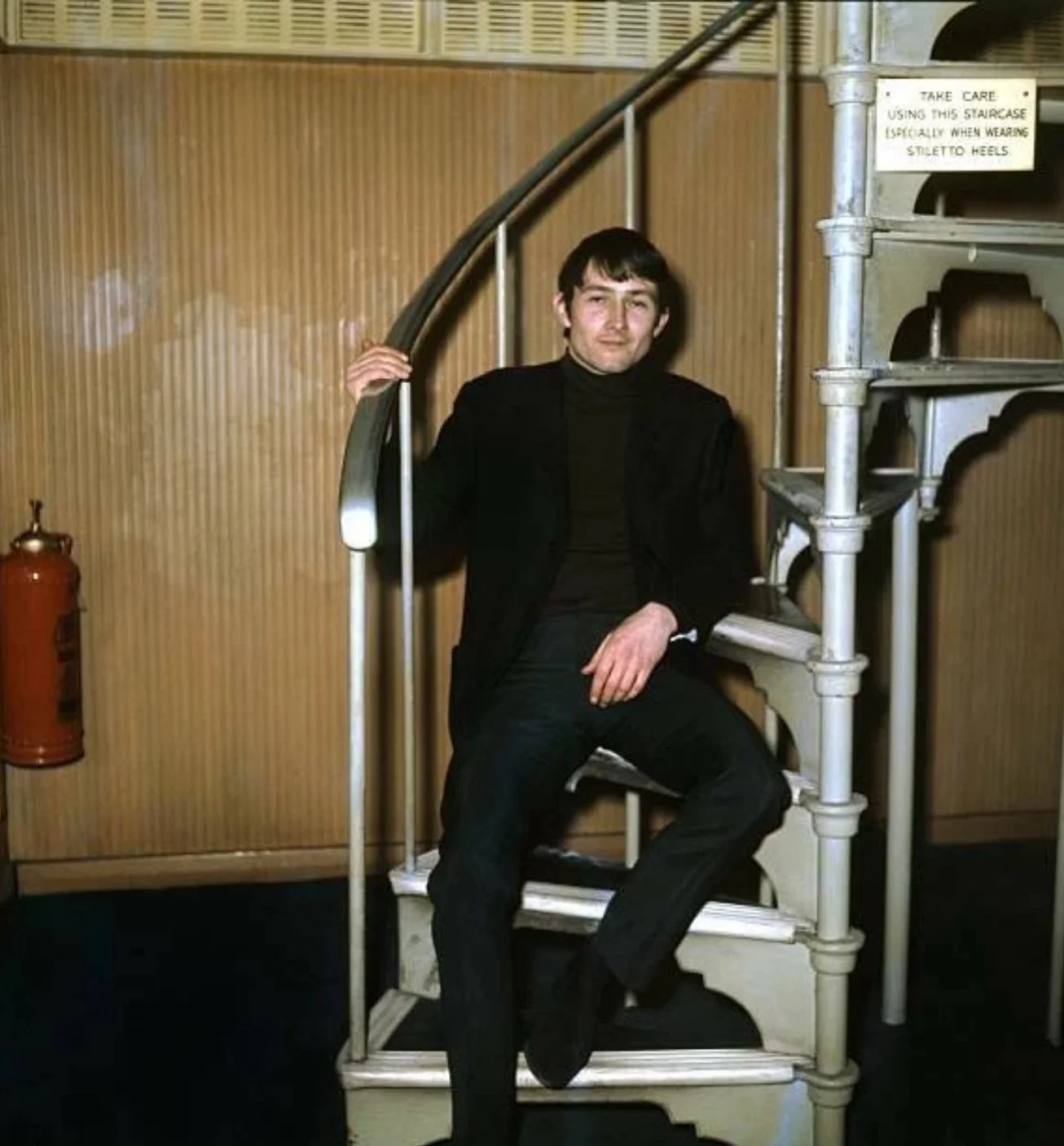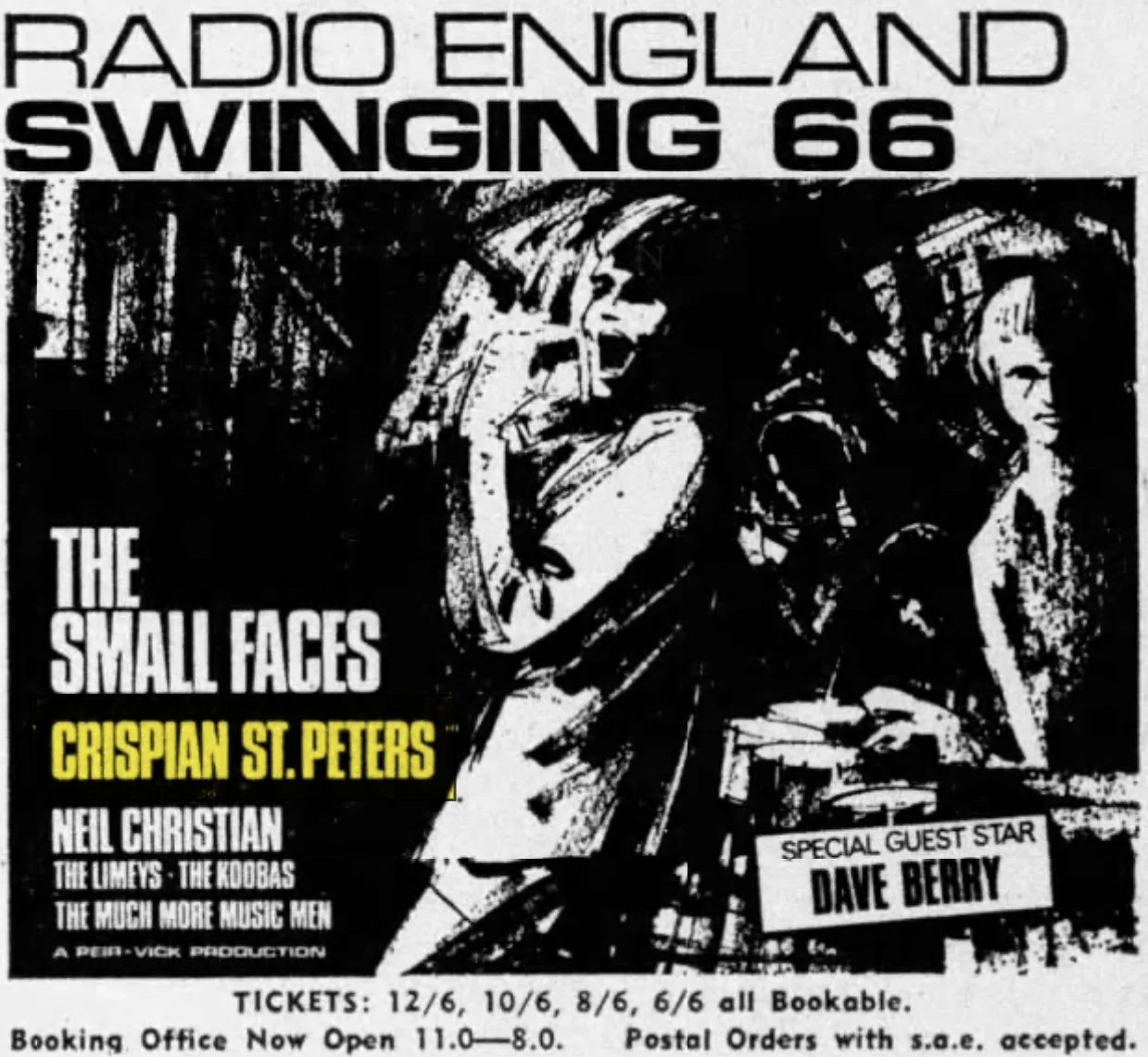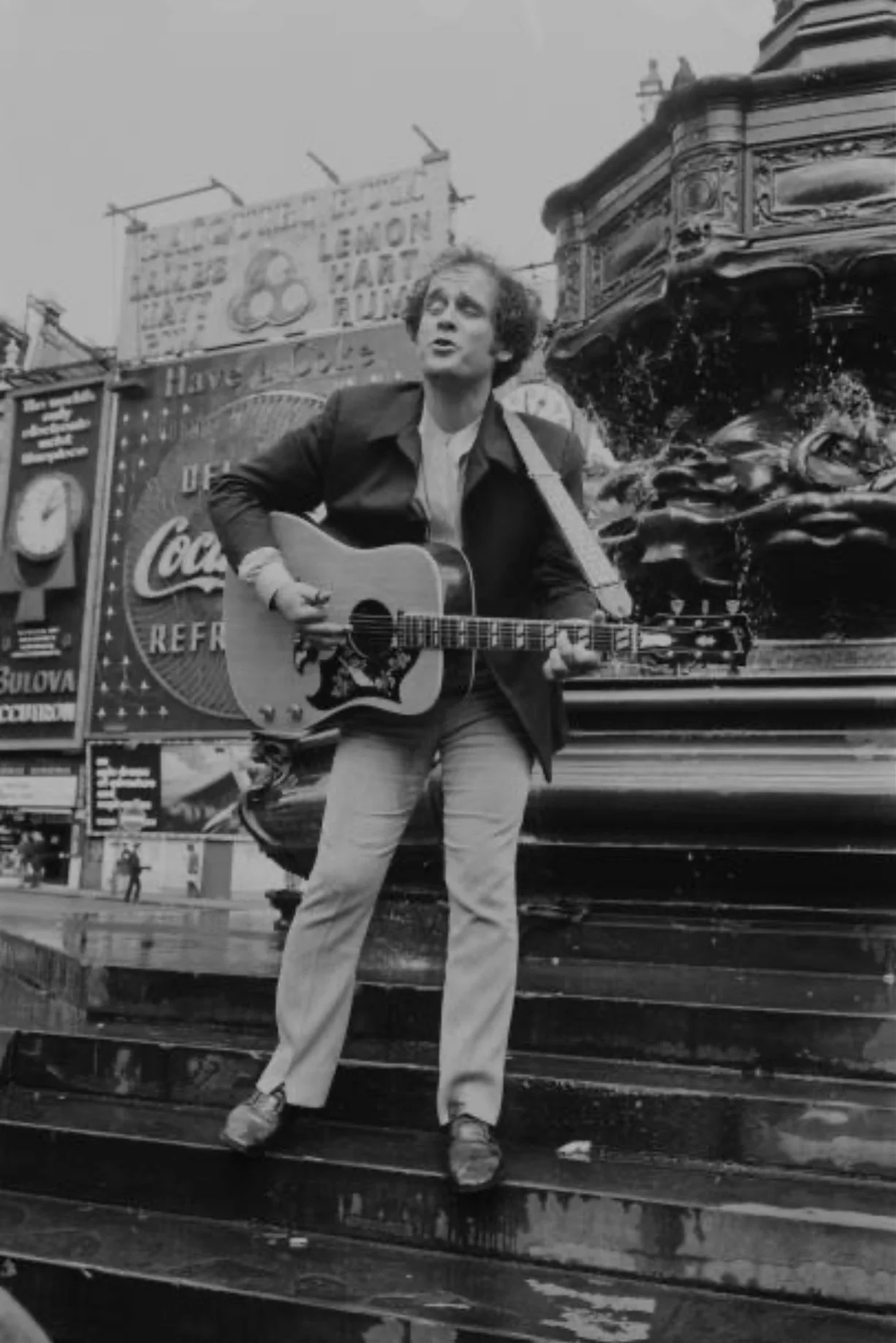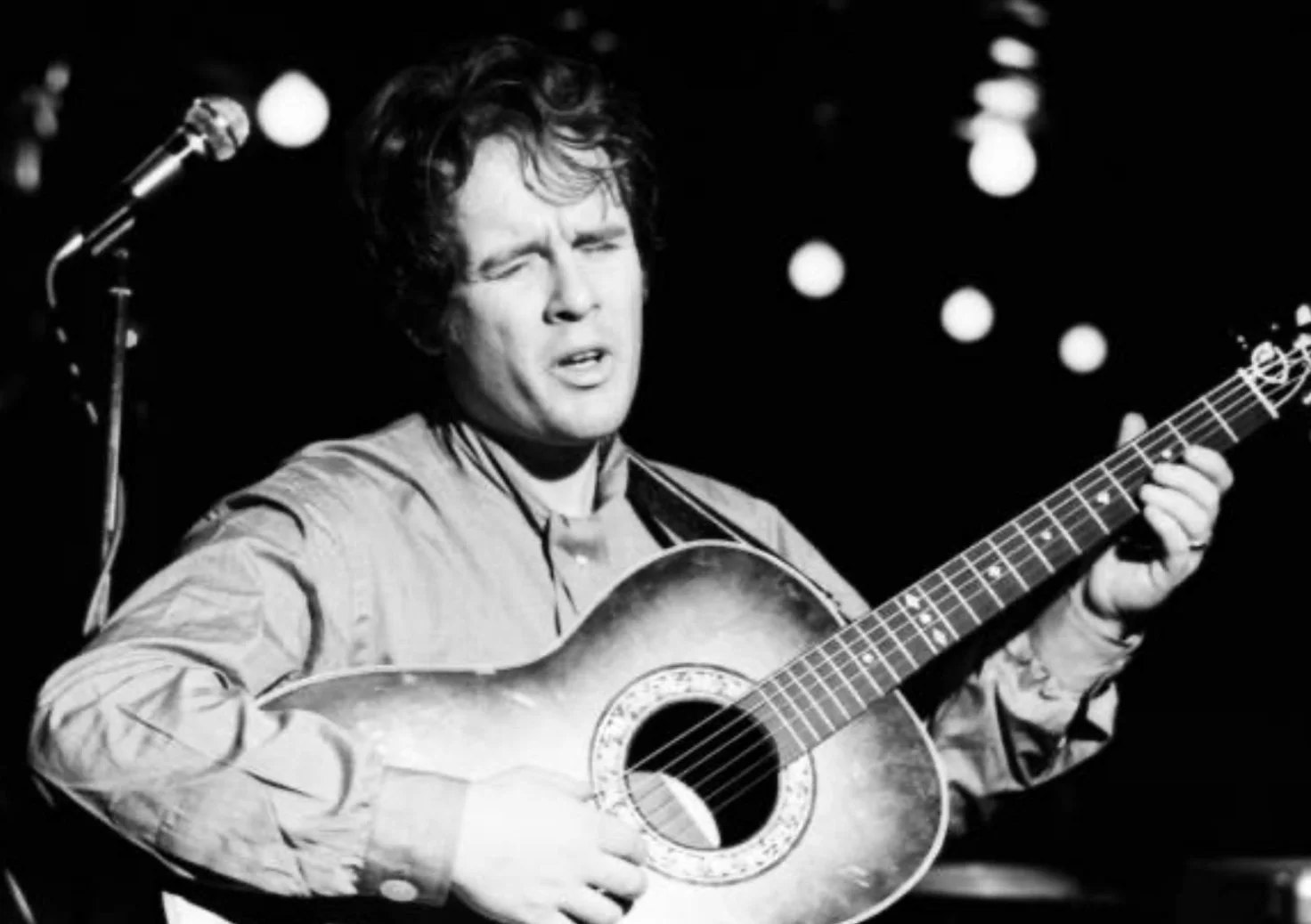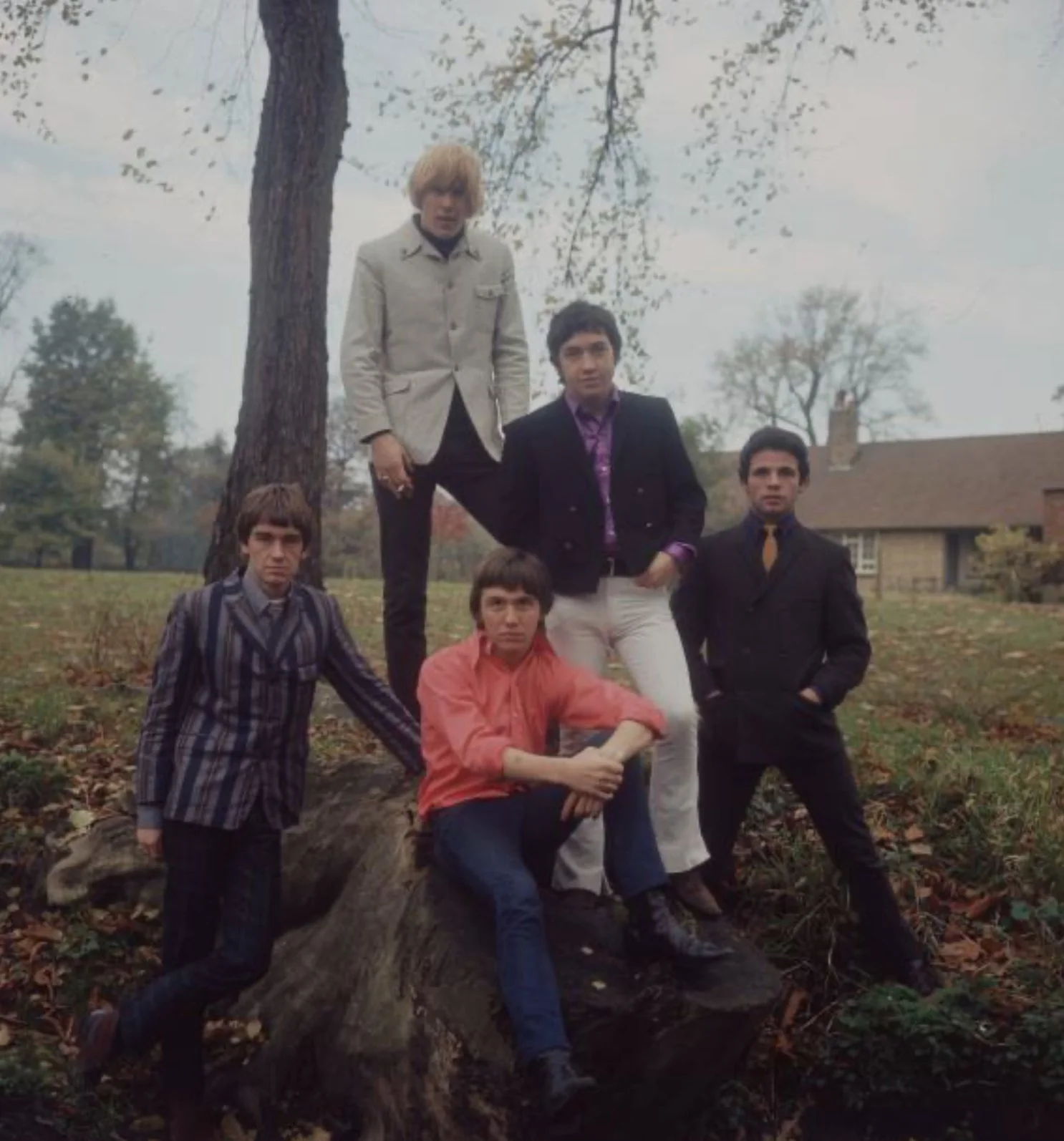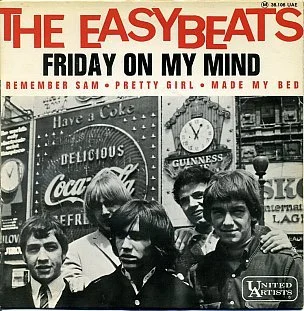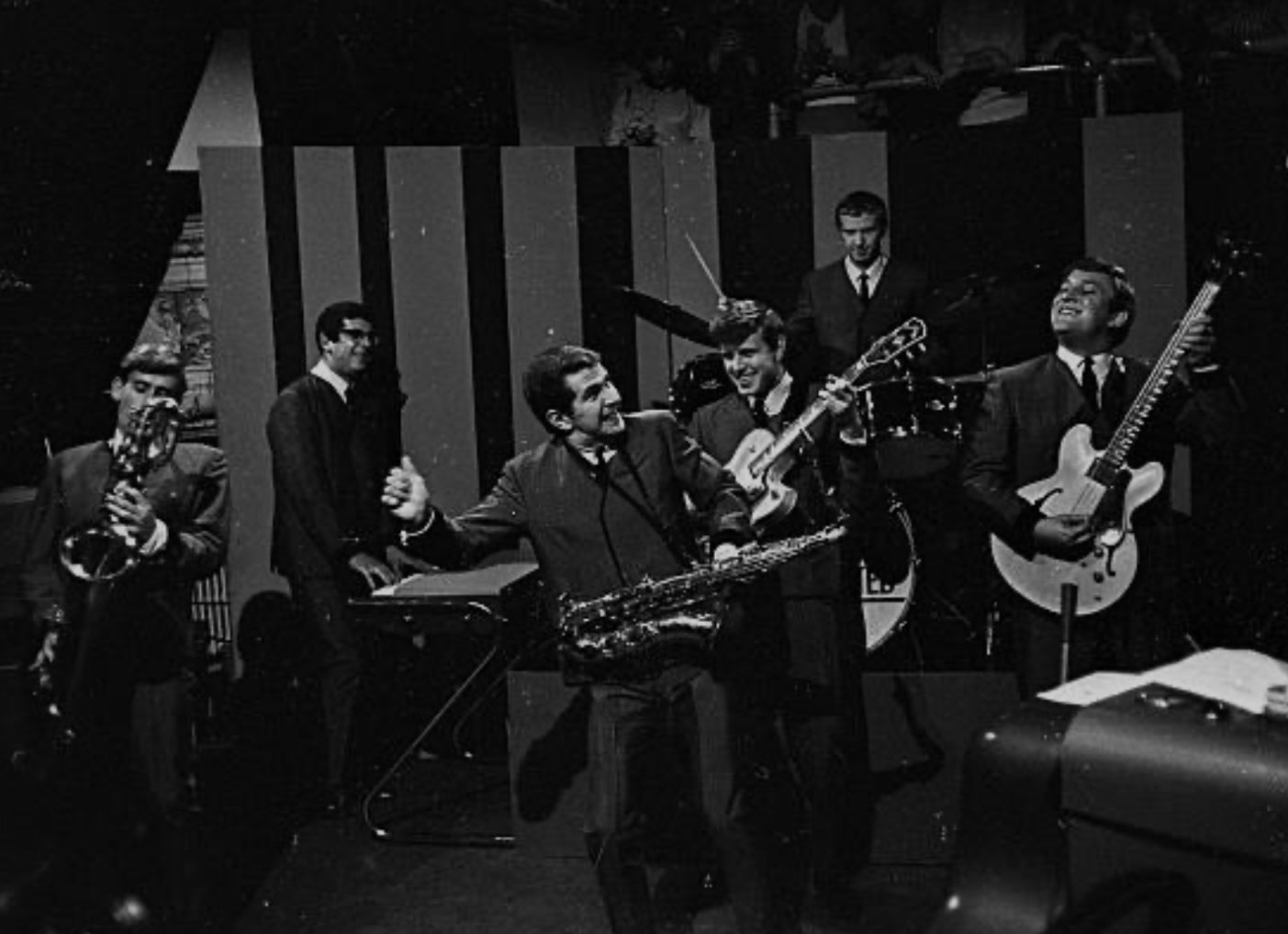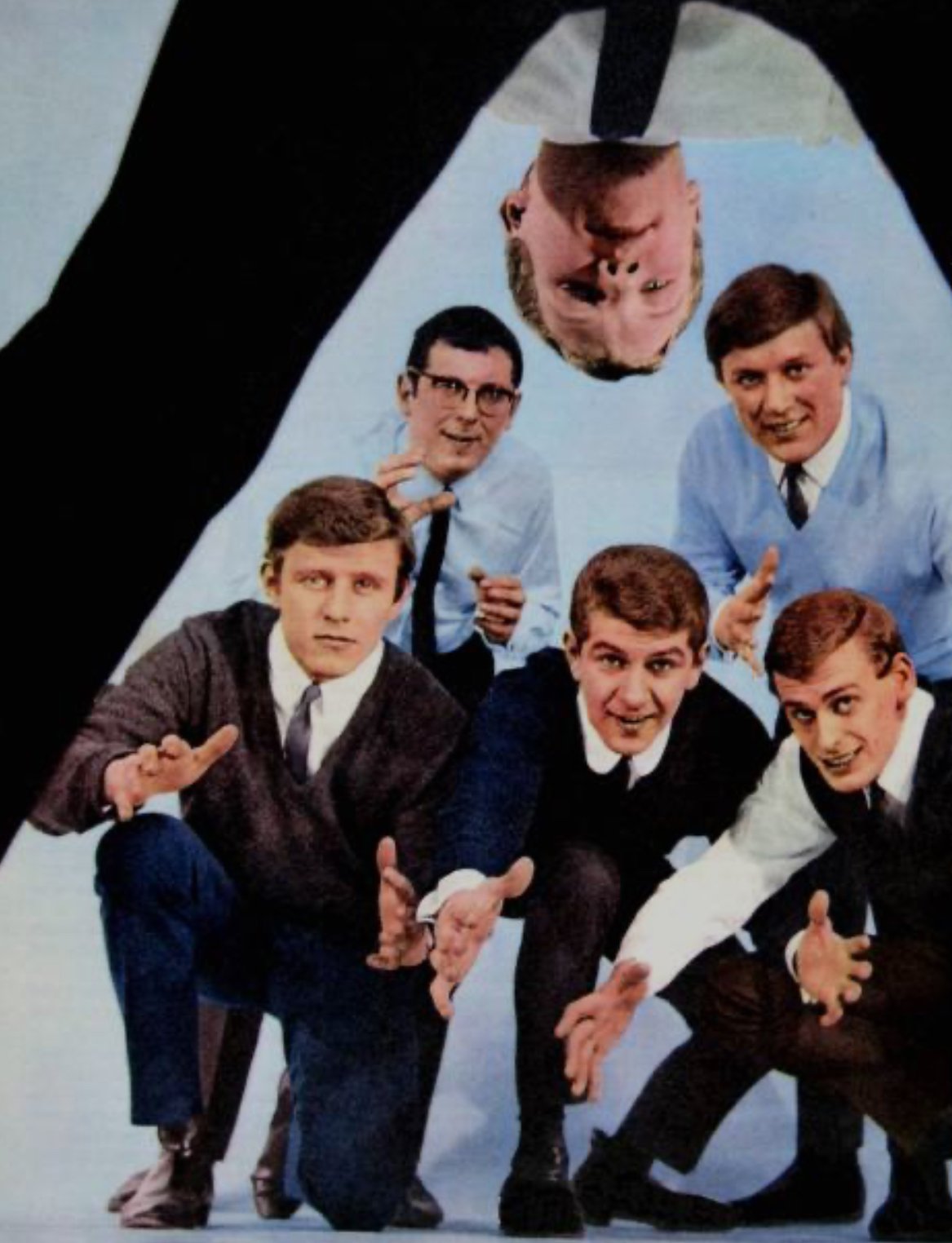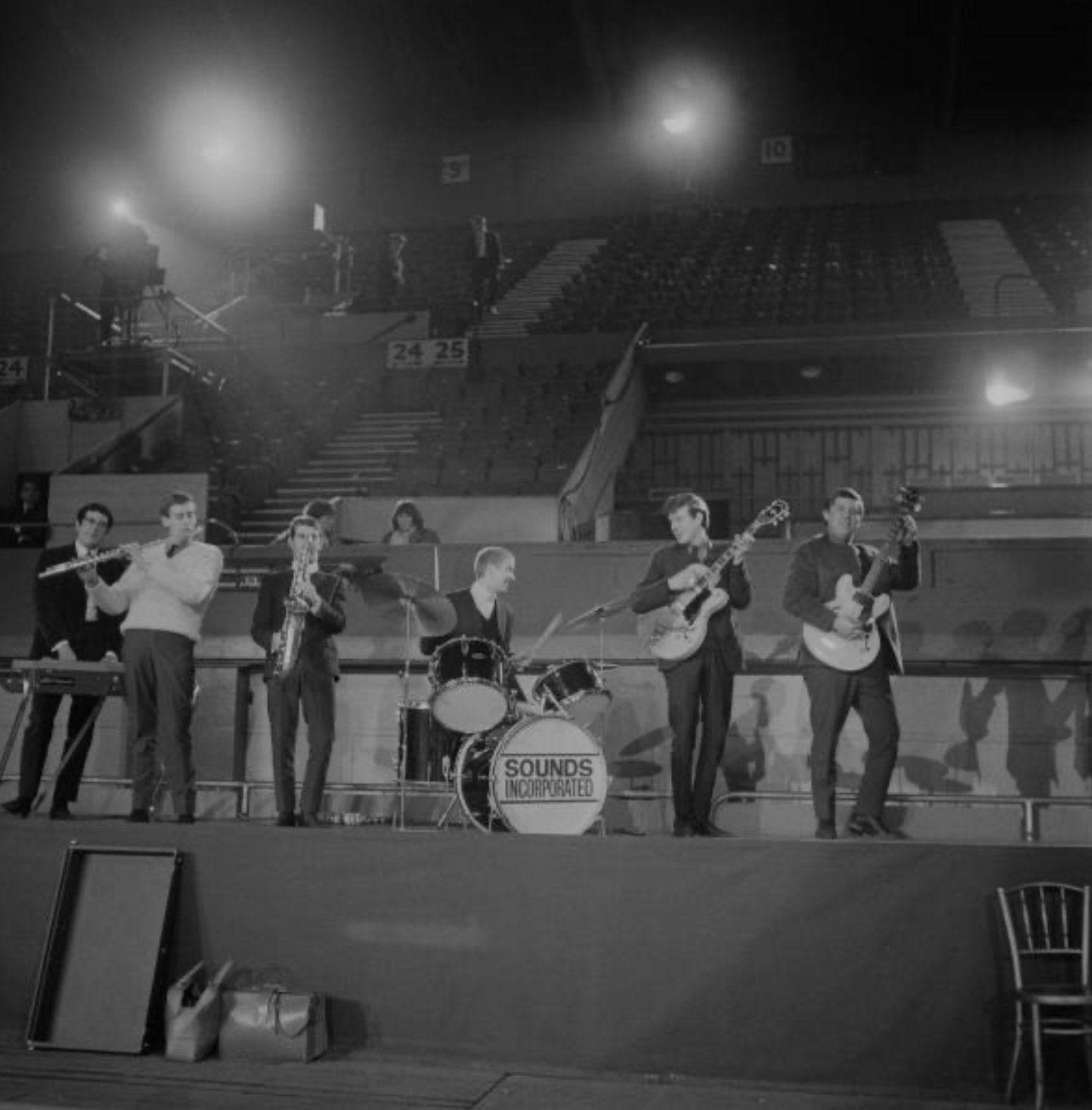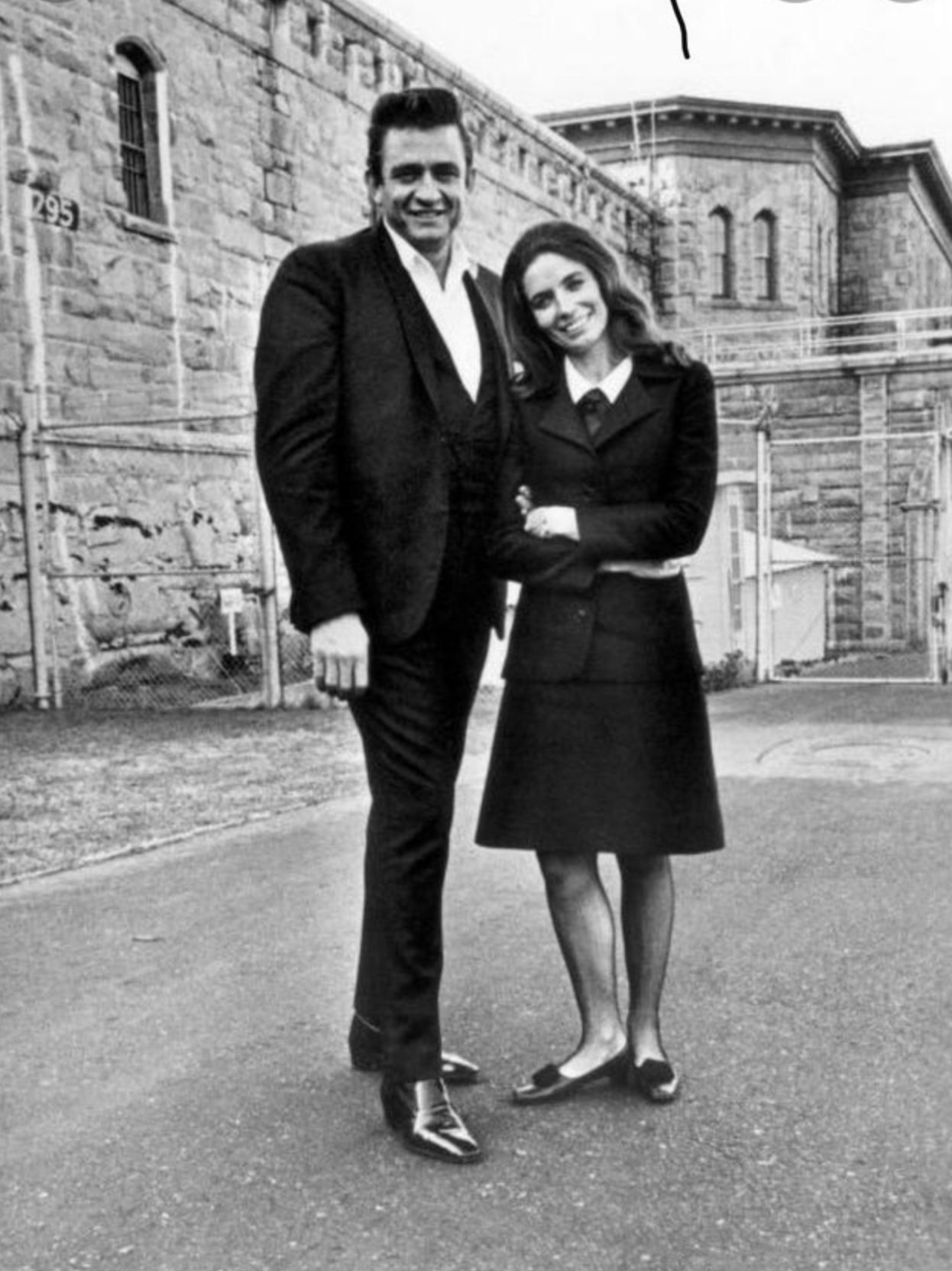Images may be subject to copyright
On this day, 19 October 1966, Manchester rock/pop band The Hollies played Cardiff’s Capitol Theatre. Also on their Babies tour bill were The Small Faces, Paul & Barry Ryan, Nashville Teens, Peter Jay & The New Jaywalkers, Robb Storme & The Whispers & Paul Jones.
One of the leading British groups of the 1960s and into the mid-1970s, they are known for their distinctive three-part vocal harmony style. Singer Allan Clarke and rhythm guitarist/singer Graham Nash founded the band as a Merseybeat-type group in Manchester, although some of the band members came from towns further north, in east Lancashire.
In October 1966, the group's fifth album, For Certain Because (UK No. 23), became their first album consisting entirely of original compositions by Clarke, Nash and Hicks.
Released in the US as Stop! Stop! Stop!, it reached No. 91 there and spawned a US release-only single, "Pay You Back with Interest", which was a modest hit, peaking at No. 28. Another track, "Tell Me to My Face", was a moderate hit by Mercury artist Keith, and was also covered a decade later by Dan Fogelberg and Tim Weisberg on their Twin Sons of Different Mothers album.
Meanwhile, the Hollies continued to release a steady stream of international hit singles: "Stop Stop Stop" (October 1966, UK No. 2, US No. 7) from For Certain Because, known for its distinctive banjo arrangement; "On a Carousel" (February 1967; UK No. 4, US No. 11, Australia No. 14[6]); "Carrie Anne" (May 1967, UK No. 3, US No. 9, Australia No. 7


